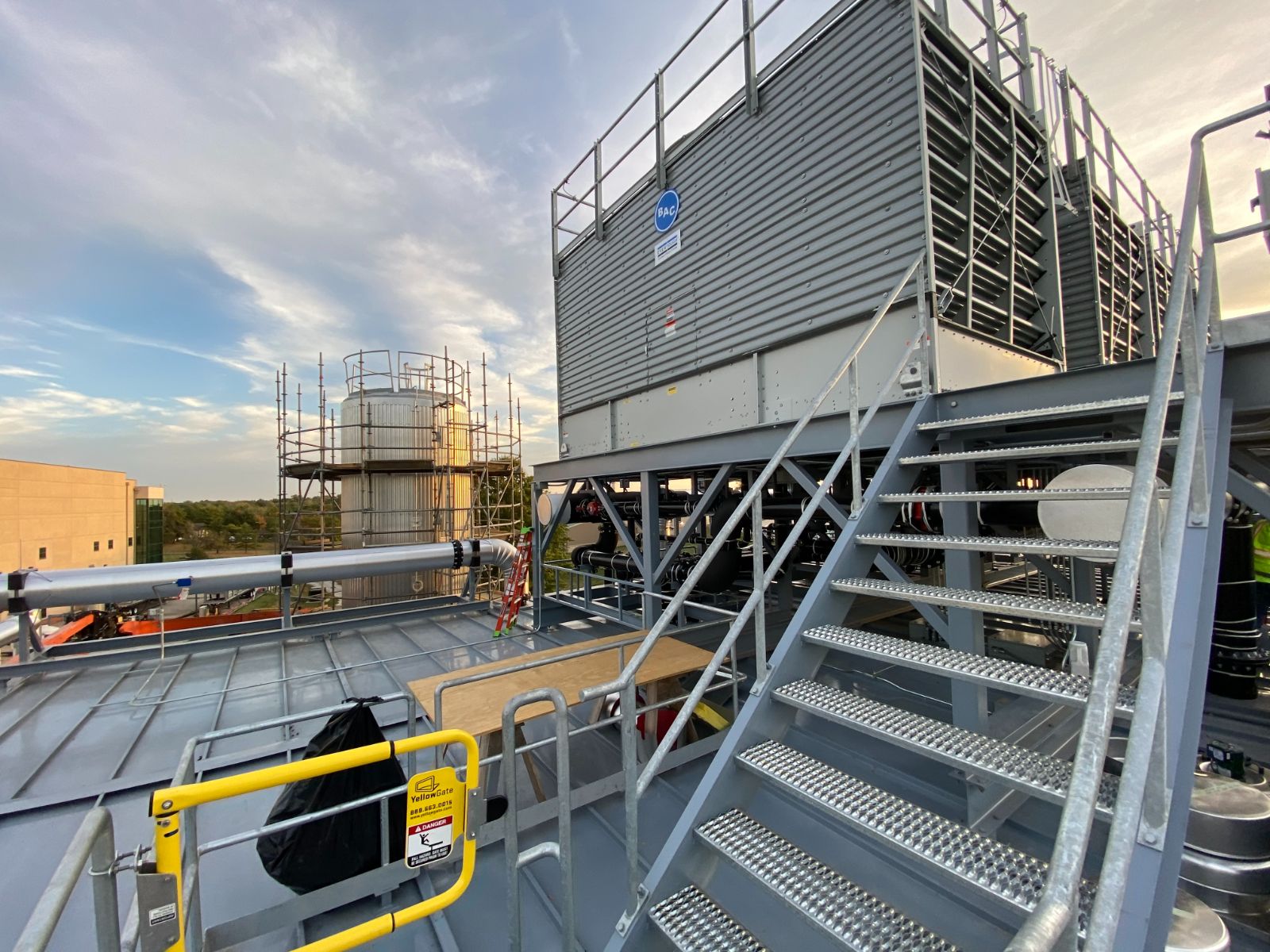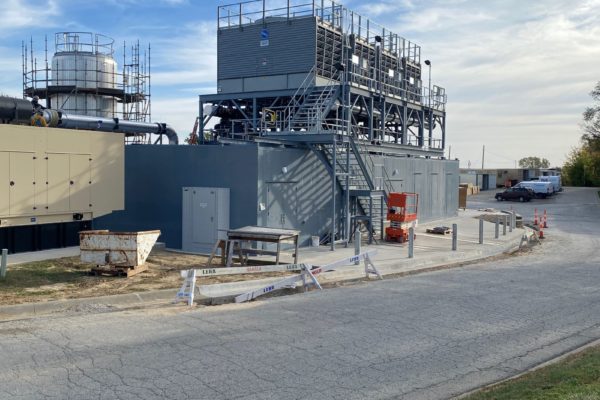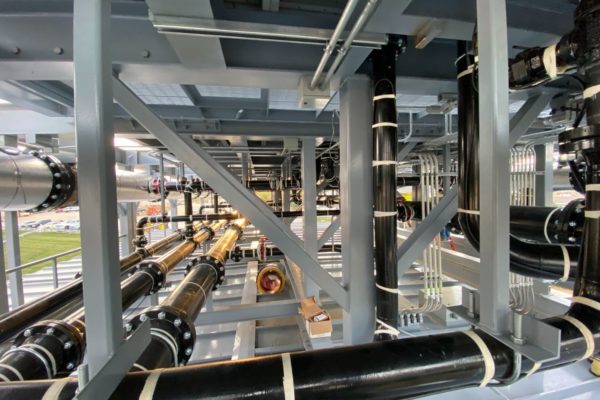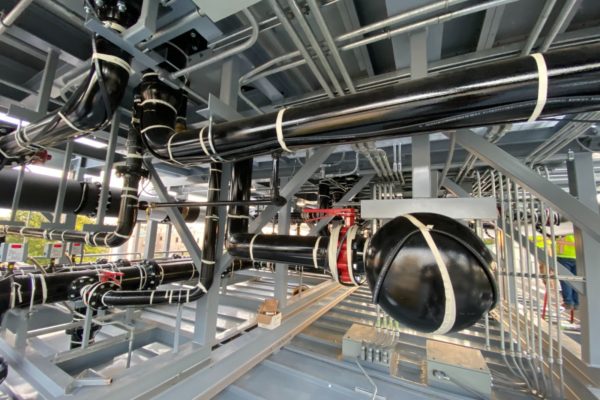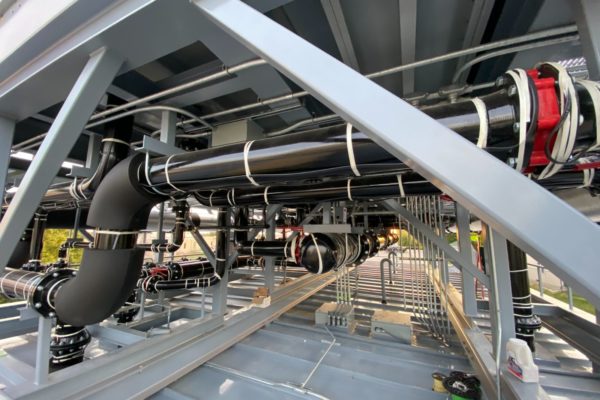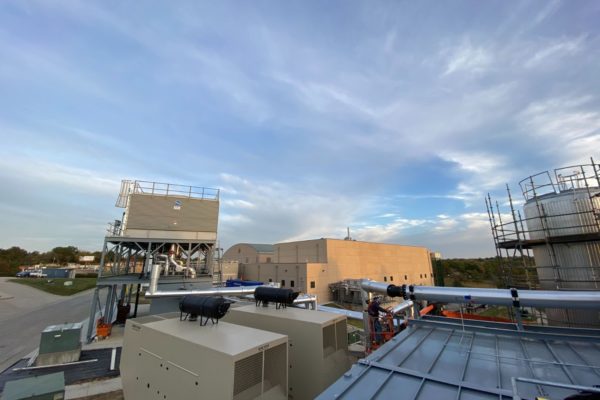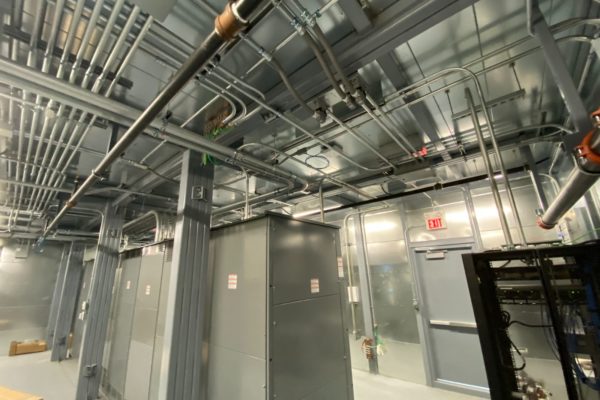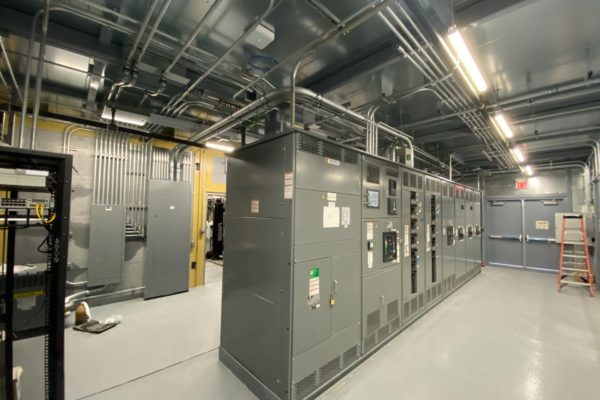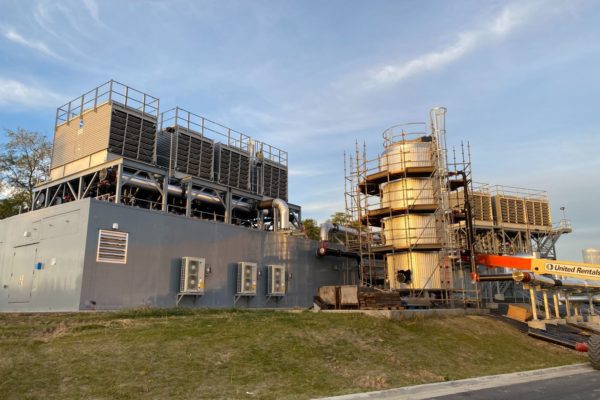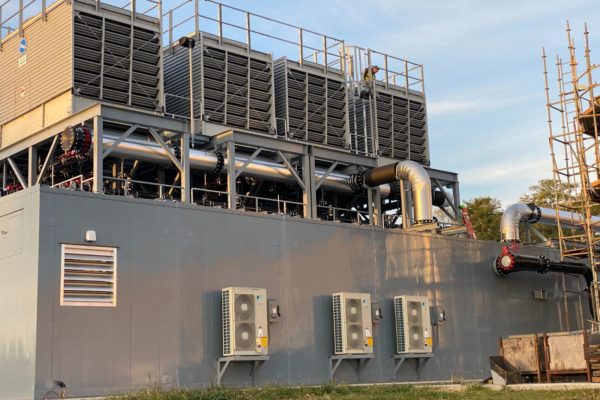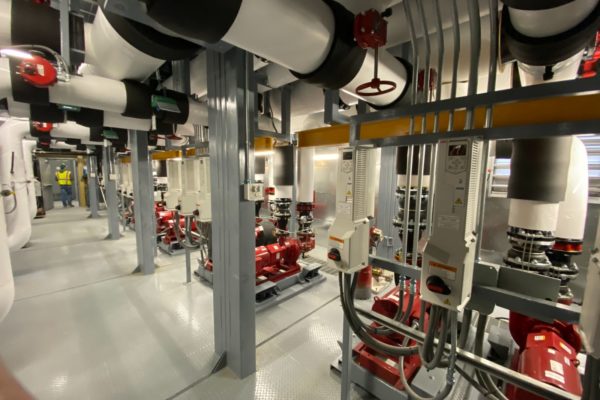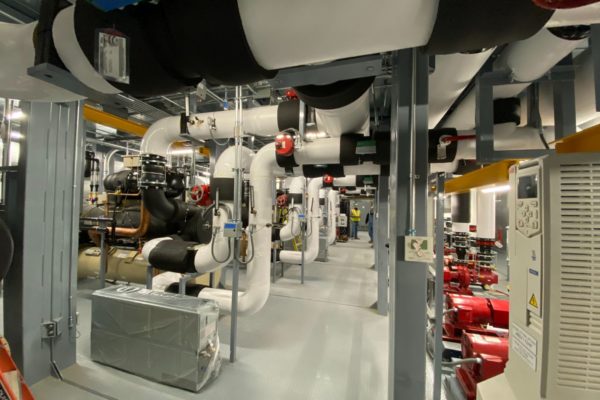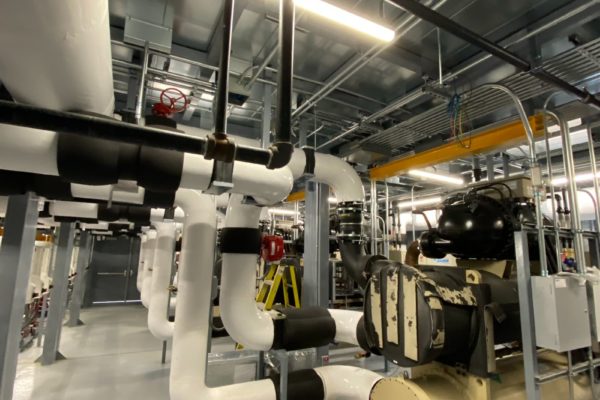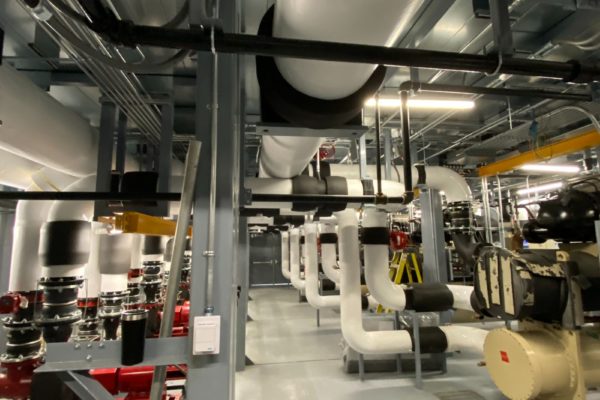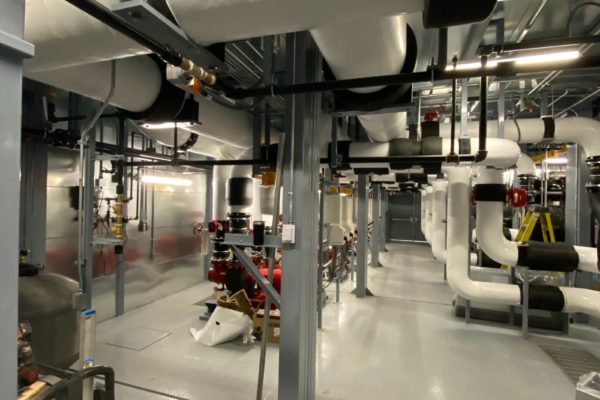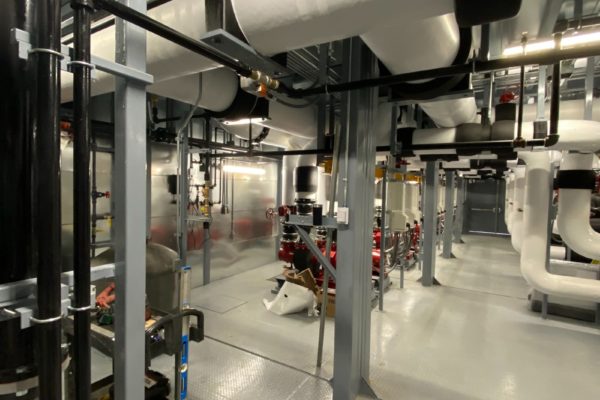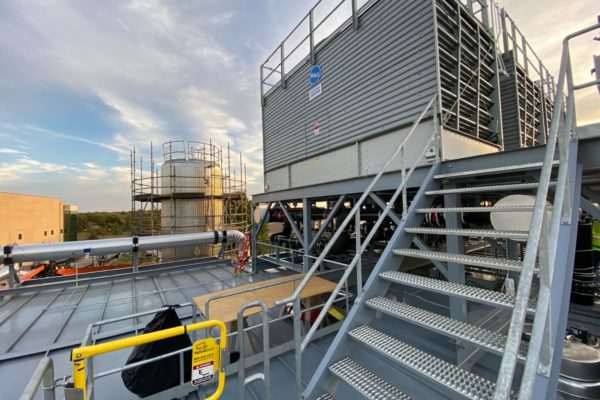Challenge:
Boehringer Ingelheim (BI) – a leading pharmaceutical company – was planning to construct a new central chilled water plant to replace an underperforming existing system. The project presented substantial technical challenges: the process system required a steady 27oF entering water temperature while accommodating drastic swings in load over short time periods. Scheduling also proved to be a significant challenge; the installation had to be completed in close coordination with a week-long site shutdown, which occurred only twice a year.
Solution:
To address project challenges, the BI team chose to use an Off-Site Construction (OSC) approach. As part of the OSC approach, BI selected and engaged Epsilon early in the design process to provide input on the best strategy to modularize and prefabricate the system, and to design the CUP in a way that accommodated the unique nature of the process chilled water loads.
Epsilon’s early engineering efforts included a detailed evaluation of trended process load data, to quantify the true capacity requirements of the new CUP. As part of this analysis the team was able to reduce total plant capacity from over 1,500-tons to just under 1,000-tons. This reduction alone saved over a million dollars in capital costs.
Epsilon’s engineering team also reconfigured the system as initially conceived, relocating a 45,000-gallon thermal storage tank from the chilled water supply side to the chilled water return side. This change enabled the CUP to maintain steady leaving water temperatures as required by the process loads, while helping reduce total required capacity. This reconfiguration was critical to providing reliable, stable and consistent chilled water utilities.
Project Overview
Client: Boehringer Ingelheim
System Type: Central Utility Plant (CUP) – Process Chilled Water
Market Sector: Pharmaceutical Manufacturing
